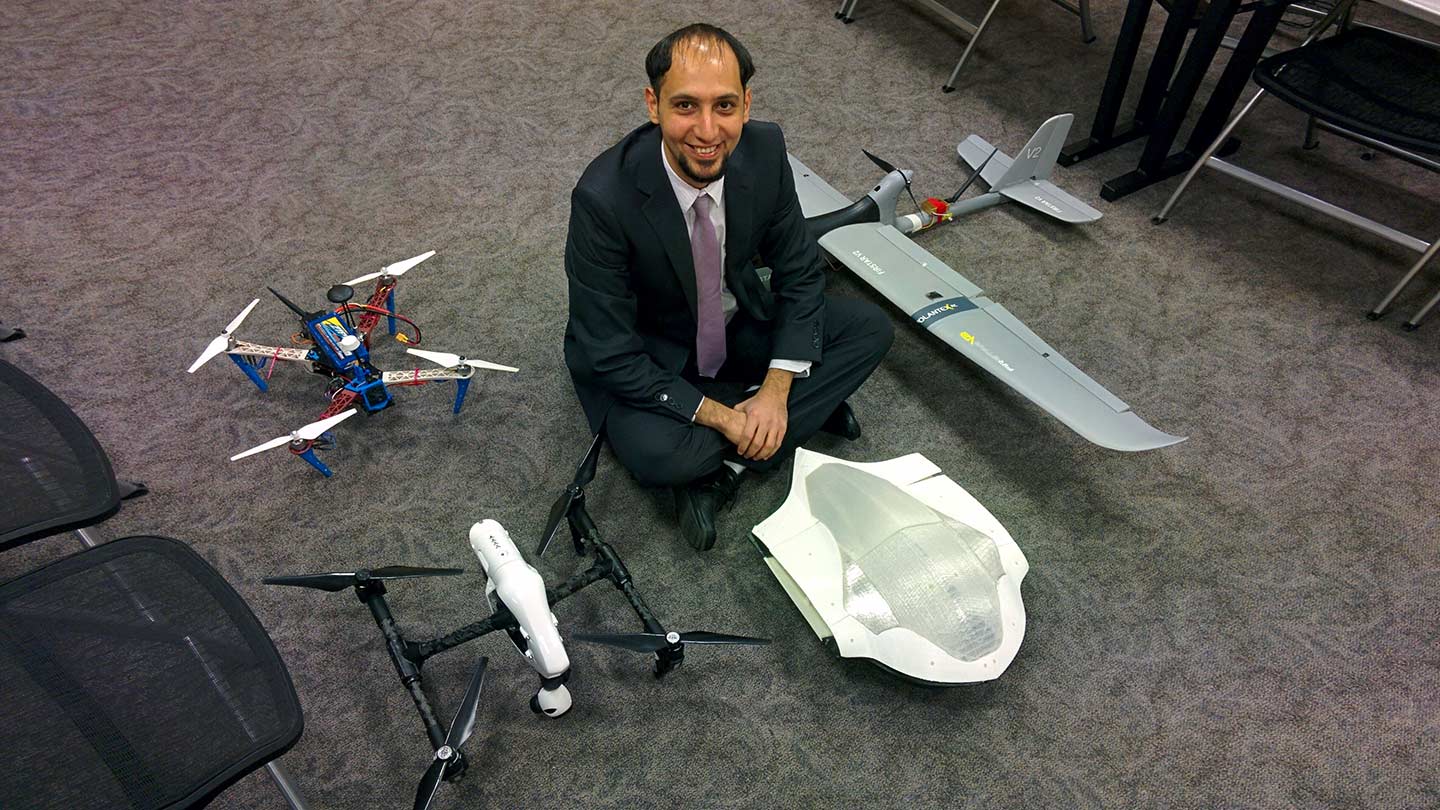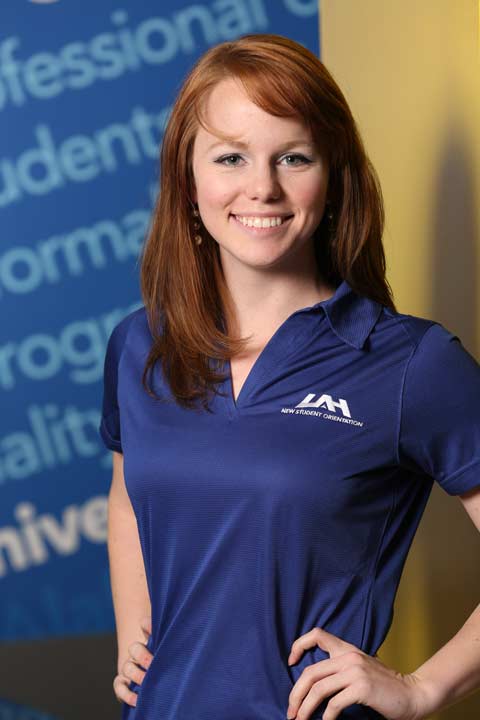
UAH/UAB computer engineering Ph.D. candidate Ali Darwish is the captain of Team UAH, whose proposal for improving the safety of Alabama’s dams is an entrant in the Infrastructure Vision 2050 Challenge.
Earlier this year, the Association of Equipment Manufacturers and herox launched the Infrastructure Vision 2050 Challenge, a three-phrase competition that tasks teams with identifying the most critical problem with U.S. infrastructure (complaint phase), creating a solution to fix it (dream phase), and then implementing that solution (build phase). From the plethora of teams that entered the complaint phase, a panel of judges recently selected 10 finalists. Now, a crowd vote that closes May 2 will determine the winner, netting that lucky team not only a $2,500 phase one prize but also bringing them one step closer to winning a total grand prize of $150,000.
One of those elite few in the running? Team UAH.
We must win in order to promote awareness about Alabama and its lack of dam safety program…and we need help from everyone to get there.

Undergraduate marketing major Analyn Bengs is a member of Team UAH.
Michael Mercier | UAH
Formed by Ali Darwish, a Ph.D. candidate in the joint computer engineering program at The University of Alabama in Huntsville (UAH) and the University of Alabama at Birmingham, the team also includes fellow UAH student Analyn Bengs and four others from the University of Alabama at Birmingham, Auburn University, and George Washington University. Their proposal, “One Crack Away from a Disaster: Dams and Water Infrastructures,” focuses on Alabama’s lack of a dam safety system.
“Dams play a critical role in our daily lives, but like most infrastructure, they go largely unnoticed until something goes wrong,” says Darwish, who grew up in Syria. “Currently, we have 2,100 uninspected dams in the state, and no dam safety program. Worse, only an estimated 2% of all known dams are inspected for safety, maintained, and have emergency plans in the event of a failure.”
Thus Team UAH’s proposal, he says, is “a novel solution for inspecting, monitoring, repairing, and collecting data for dams, and the water delivery and management infrastructures.” This includes using state-of-the-art sensing technology, unmanned vehicles, microrobots, a cube satellite, cloud services, and infrared and ultrasonic inspection techniques.
“We have designed and prototyped a waterproof drone that can be used to drop sensors in the water behind the dam and then collect data as they float,” says Darwish, who also serves as founder and CEO of Exponential Drones. “Other sensors will be used for monitoring the stress on girders, while displacement sensors will be used for monitoring expansion in the cracks and tilt sensors will be used for monitoring bearings tilt, pier movements, and settling.”
Teammate Bengs, a junior marketing major and UAH orientation leader, says one of the most integral parts of the proposed technology involves using thermal cameras. “The thermal images taken by the cameras show the variation of heat on the surface of the dam or infrastructure,” she explains. “This can potentially detect sites where there are leaks or cracks.”

Waterproof drones are an integral part of Team UAH's plan to improve the safety of Alabama's dams.
Like the other ten phase one finalists, Team UAH has already received a cash prize of $250; however, time is running out for “One Crack Away from a Disaster: Dams and Water Infrastructures”to gain the votes needed to win. But as much as the $2,500 prize for doing so would come in handy – particularly as seed money for prototyping their technology – there’s more at stake than just a monetary victory for this underdog team.
“We think that what we are doing is important for the state of Alabama. Many Alabamians live near dams and are in constant fear of a structural failure, making it a big concern,” says Darwish. “So we must win in order to promote awareness about Alabama and its lack of a dam safety program. And we need everyone’s help to get there!”